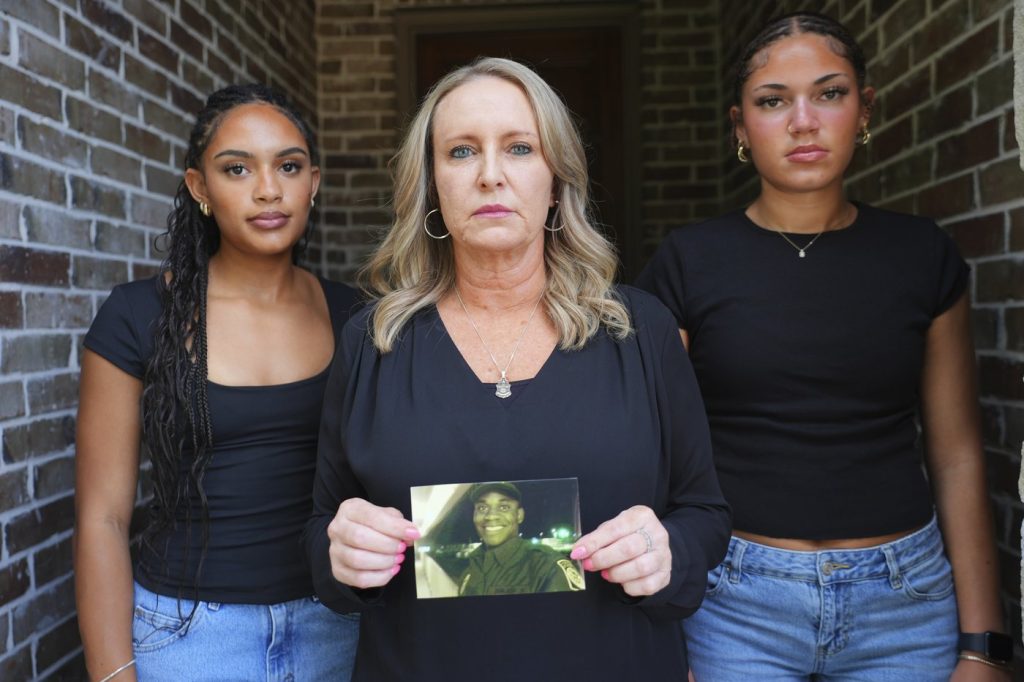Lisa Afolayan's struggle for federal benefits began after her husband, Nate Afolayan, died following a demanding training program with the U.S. Border Patrol. After his death in 2009, Lisa applied for the Public Safety Officers’ Benefits Program, which is designed to support the families of first responders who lose their lives in the line of duty. Sixteen years later, Lisa and her two daughters have yet to receive any financial assistance, causing them immense emotional distress.
Lisa describes the experience as a nightmare that too many families encounter. “It just makes me so mad that we are having to fight this so hard,” she expressed, highlighting the bureaucratic nature of the program. Nate Afolayan had been on the verge of his graduation from the Border Patrol training academy when he tragically passed away from a heat-related illness that officials controversially attributed to his genetic sickle cell trait.
The backlog in processing claims within the Public Safety Officers' Benefits Program has increased significantly. An analysis revealed nearly 900 claims pending for over a year, marking a substantial rise from five years ago. Of these, more than 120 claims have been unresolved for at least five years, with some dating back a decade. Charlie Lauer, a former general counsel for the program, expressed outrage over the long wait times, empathizing with families like Lisa's who are forced to navigate this challenging process.
Justice Department officials, responsible for overseeing the program, acknowledged the backlog resulting from a doubling in claims over the past five years. They cited the decision-making complexity, which includes medical and causation issues, as factors contributing to delays in processing claims. In contrast, Lisa’s claim continues to face repetitive denials, with federal lawyers working diligently to uphold their positions.
The denial of Lisa Afolayan's claim stems from attributing Nate's death to sickle cell trait rather than his training conditions. Despite the program having previously awarded benefits for similar circumstances, Lisa's case has been contingent upon meeting stringent criteria, which emphasizes that the death must result from an injury sustained on duty.
Lisa and her daughters, who relocated from California to Texas after Nate's death, have experienced the injustice of the system firsthand. Their daughter Natalee, who was just 3 years old when her father died, recently completed her first year at the University of Texas without any benefits to assist with her education expenses. The program was established in 1976 and originally promised a payout of $50,000 for families of officers who died in the line of duty—an amount that has since been adjusted for inflation to approximately $448,575 today.
Despite the claims process potentially becoming less efficient over the years—with growing complexities and additional eligibility criteria for COVID-19-related claims—the program's mission to support families has been scrutinized. Sen. Ted Cruz and other lawmakers have taken steps to push for legislative changes that would expedite claim determinations, illustrating the urgent need for reform.
Lisa Afolayan's case has become emblematic of the greater issues within the Public Safety Officers' Benefits Program. The focus on Nate’s genetic condition rather than the circumstances of his death has highlighted potential failures in the system's response to the unique challenges faced by families in similar situations. While Afolayan's resilience throughout the ordeal has been praised by advocates, the ongoing fight for recognition and support continues to weigh heavily on her and her children.
The situation has resulted in a prolonged emotional toll on Lisa, who has dedicated over 16 years to pursuing benefits that are rightfully owed to her family. As they await resolution, this prolonged battle illustrates the ongoing struggles of families affected by the losses of first responders and the bureaucratic challenges that can complicate their paths to recovery.











